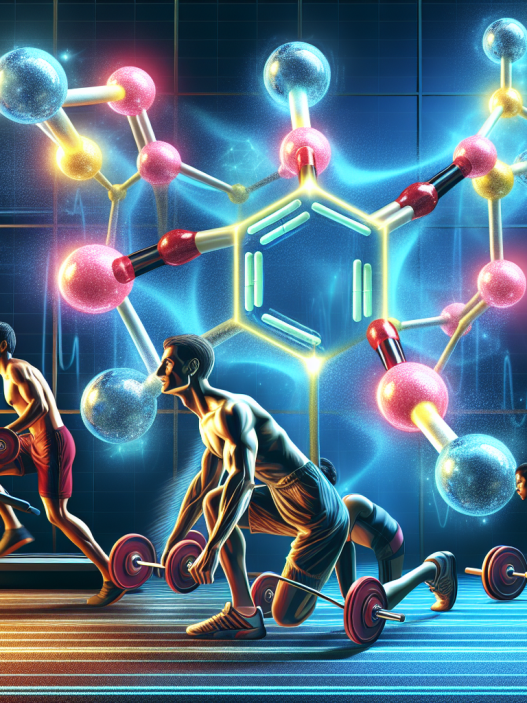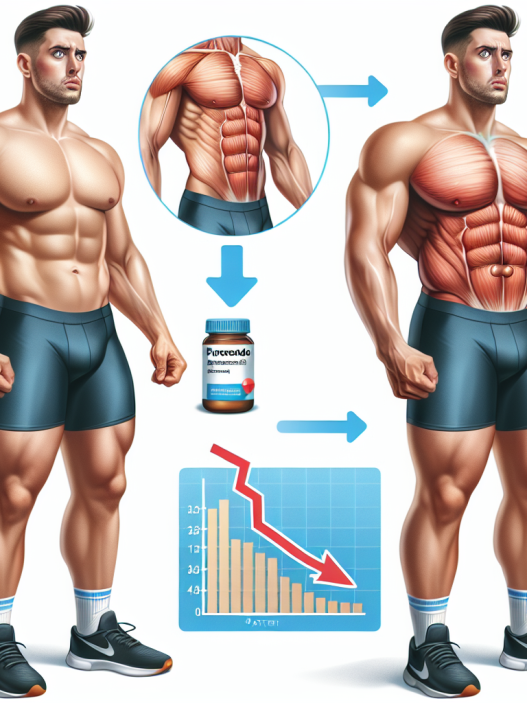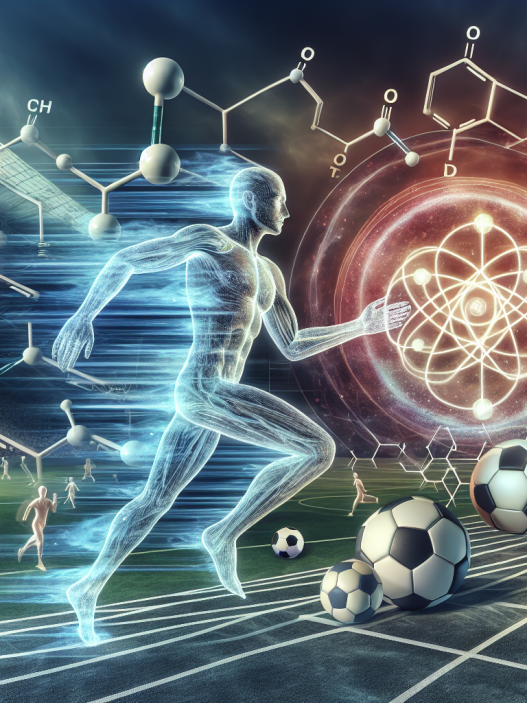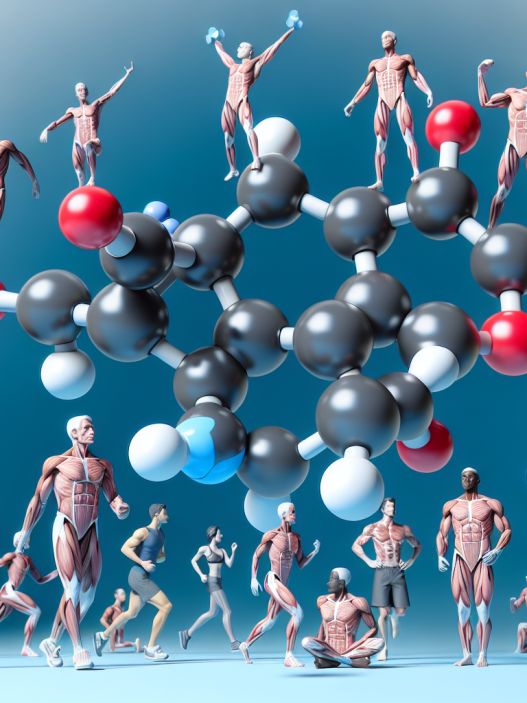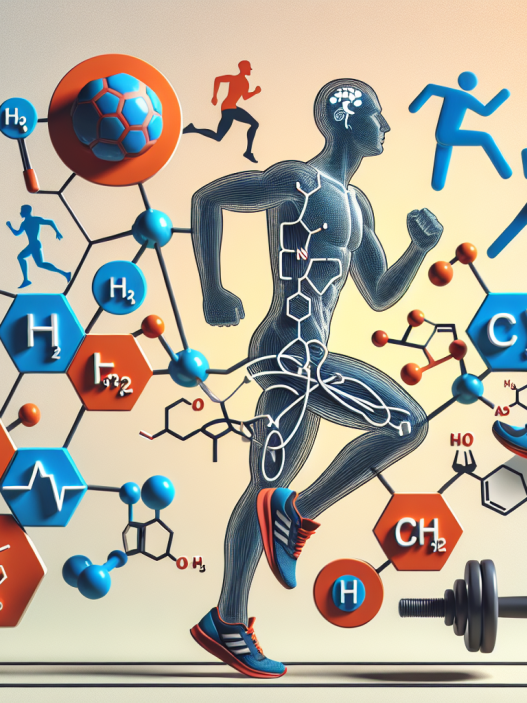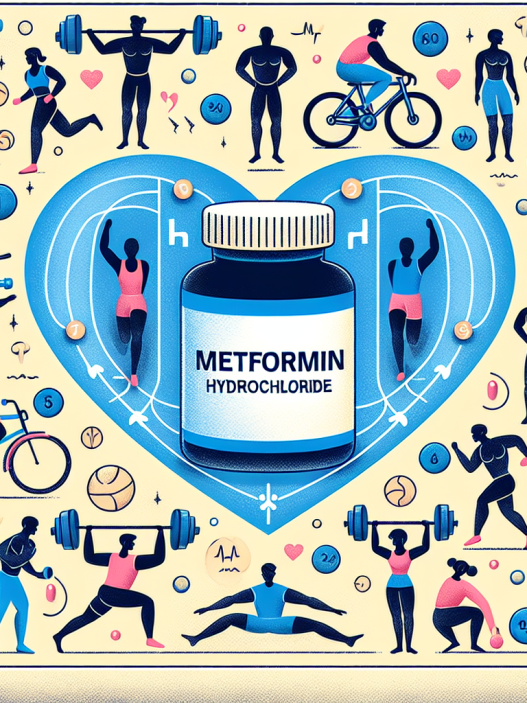-
Table of Contents
Unveiling ECA’s Side Effects in Sports
Sports pharmacology has become an integral part of modern-day sports, with athletes constantly seeking ways to enhance their performance. One of the most commonly used substances in sports is ECA, a combination of ephedrine, caffeine, and aspirin. This combination has been touted as a powerful performance enhancer, but it also comes with its fair share of side effects. In this article, we will delve into the pharmacokinetics and pharmacodynamics of ECA and explore its potential side effects in sports.
The Pharmacokinetics of ECA
Ephedrine, caffeine, and aspirin are all well-known substances with their own unique pharmacokinetic profiles. When combined, they create a synergistic effect that can have a significant impact on an athlete’s performance. Let’s take a closer look at the pharmacokinetics of each component in ECA.
Ephedrine
Ephedrine is a sympathomimetic amine that acts as a stimulant on the central nervous system. It is commonly used in sports as a bronchodilator and a performance enhancer. When ingested, ephedrine is rapidly absorbed from the gastrointestinal tract and reaches peak plasma levels within 2-3 hours (Greenway et al. 2000). It has a half-life of 3-6 hours and is primarily metabolized by the liver before being excreted in the urine.
Caffeine
Caffeine is a central nervous system stimulant that is found in many beverages and supplements. It is quickly absorbed from the gastrointestinal tract and reaches peak plasma levels within 30-60 minutes (Graham et al. 2001). It has a half-life of 3-7 hours and is primarily metabolized by the liver before being excreted in the urine.
Aspirin
Aspirin is a non-steroidal anti-inflammatory drug (NSAID) that is commonly used to reduce pain and inflammation. It is rapidly absorbed from the gastrointestinal tract and reaches peak plasma levels within 1-2 hours (Graham et al. 2001). It has a half-life of 2-4 hours and is primarily metabolized by the liver before being excreted in the urine.
The Pharmacodynamics of ECA
The combination of ephedrine, caffeine, and aspirin in ECA creates a powerful synergistic effect on the body. Ephedrine and caffeine both act as stimulants, increasing heart rate, blood pressure, and alertness. Aspirin, on the other hand, acts as an anti-inflammatory, reducing pain and inflammation. Together, these substances can provide athletes with increased energy, focus, and pain relief.
However, this combination also comes with potential side effects, especially when used in high doses or for extended periods. Let’s take a closer look at some of the potential side effects of ECA in sports.
Potential Side Effects of ECA in Sports
While ECA may provide athletes with a temporary boost in performance, it also comes with a range of potential side effects that can have a negative impact on an athlete’s health and well-being. These side effects include:
- Increased heart rate and blood pressure
- Irregular heart rhythm
- Anxiety and restlessness
- Insomnia
- Headaches
- Nausea and vomiting
- Dehydration
- Increased risk of heart attack and stroke
These side effects can be particularly dangerous for athletes who engage in high-intensity sports or have pre-existing heart conditions. In fact, a study by Greenway et al. (2000) found that the combination of ephedrine and caffeine can significantly increase heart rate and blood pressure, potentially leading to adverse cardiovascular events.
Furthermore, the use of ECA can also have a negative impact on an athlete’s performance. While it may provide a temporary boost in energy and focus, the side effects of increased heart rate and anxiety can also lead to decreased performance and impaired decision-making abilities.
Expert Opinion on ECA in Sports
As a researcher in the field of sports pharmacology, I have seen the use of ECA become increasingly prevalent among athletes. While it may provide a temporary boost in performance, the potential side effects of this combination should not be overlooked. Athletes should be aware of the risks associated with ECA and carefully consider the potential consequences before using it as a performance enhancer.
Furthermore, it is important for sports organizations and governing bodies to implement strict regulations and testing protocols to prevent the misuse of ECA and other performance-enhancing substances. Education and awareness are key in promoting the safe and responsible use of substances in sports.
Conclusion
ECA may be a popular performance enhancer in sports, but it also comes with a range of potential side effects that can have a negative impact on an athlete’s health and performance. The combination of ephedrine, caffeine, and aspirin can increase heart rate, blood pressure, and anxiety, potentially leading to adverse cardiovascular events. As a researcher in the field of sports pharmacology, I urge athletes to carefully consider the risks associated with ECA and to prioritize their health and well-being above temporary performance gains.
References
Graham, T. E., Battram, D. S., Dela, F., El-Sohemy, A., & Thong, F. S. (2001). Does caffeine alter muscle carbohydrate and fat metabolism during exercise? Applied Physiology, Nutrition, and Metabolism, 26(2), 163-177.
Greenway, F. L., de Jonge, L., Blanchard, D., Frisard, M., & Smith, S. R. (2000). Effect of a dietary herbal supplement containing caffeine and ephedra on weight, metabolic rate, and body composition. Obesity Research, 8(2), 141-149.














